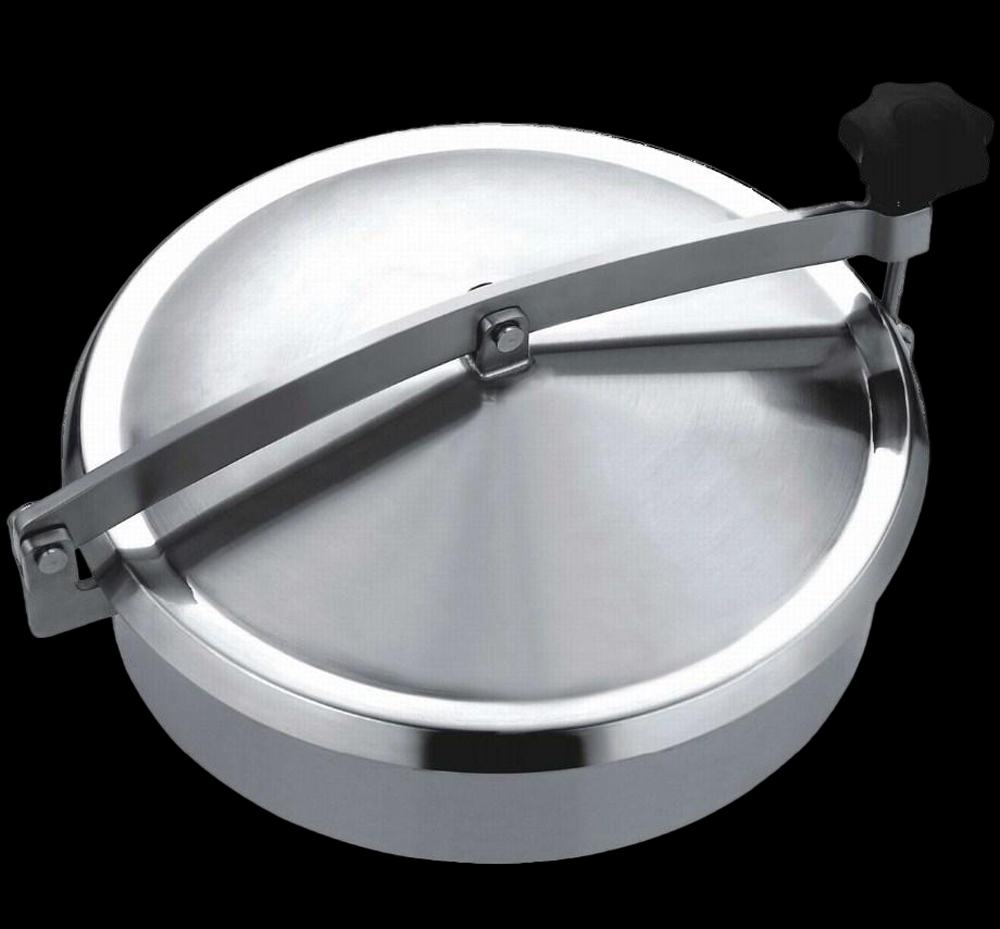Paslanmaz Tank Kapağı Nedir?
Genel Tanımı
Paslanmaz tank kapağı, sıvı ve gazların depolandığı tankların üstünü güvenli bir şekilde kapatan, paslanmaz çelikten üretilmiş bir ekipmandır. Sızdırmazlığı ve dayanıklılığı sayesinde hem içeriği korur hem de dış etkenlere karşı mükemmel bir bariyer oluşturur.
Kullanım Amaçları
Başlıca amacı tankın içine istenmeyen maddelerin girmesini engellemek ve içeriğin dışarıya sızmasını önlemektir. Ayrıca temizlik ve bakım için kolay erişim sağlar.
Paslanmaz Tank Kapaklarının Avantajları
Korozyon Direnci
Paslanmaz çelik, özellikle nemli ve kimyasal ortamlarda gösterdiği direnç sayesinde uzun ömürlü bir kullanım sunar. Paslanmaz kapaklar, korozyona uğramaz ve zamanla yapısını bozmaz.
Hijyenik Yapısı
Paslanmaz yüzeyler kolay temizlenebilir olduğu için özellikle gıda ve ilaç endüstrisinde hijyen açısından tercih edilir.
Uzun Ömürlü Kullanım
Kaliteli çelik ve doğru üretim teknikleri sayesinde tank kapakları yıllarca sorunsuz çalışır. Bu da bakım ve değiştirme maliyetlerini azaltır.
Nerelerde Kullanılır?
Gıda Endüstrisinde
Süt, meyve suyu, yağ ve benzeri ürünlerin saklandığı tanklarda paslanmaz kapaklar hijyenik ve güvenli çözümler sunar.
Kimya Sanayisinde
Asit ve baz gibi kimyasal maddelerin taşındığı veya depolandığı tanklarda kapakların dayanıklılığı hayati önem taşır.
Su ve Atık Su Depolarında
Su deposu ve arıtma tesislerinde sızdırmazlık ve güvenli kapanış gerektiren alanlarda kullanılır.
İlaç Üretiminde
Steril ortamların korunması adına paslanmaz kapaklar olmazsa olmaz bir ekipmandır.
Paslanmaz Tank Kapağı Türleri
Vidalı Kapaklar
Küçük hacimli tanklarda sık kullanılan bir kapak tipidir. Vida ile sıkılarak sızdırmazlık sağlanır.
Mandallı Kapaklar
Açılıp kapanması kolay olan bu kapaklar bakım ve temizlik için idealdir.
Basınçlı Sistem Kapakları
Yüksek basınç altında çalışan tanklarda kullanılan özel conta ve kilitleme sistemlerine sahip kapaklardır.
Menhol Kapakları
Büyük açıklık sağlayan bu kapaklar, insan girişine uygun boyutlarıyla temizlik ve kontrol işlerinde kullanılır.
Teknik Özellikleri Nelerdir?
Malzeme Kalitesi (304/316)
304 kalite paslanmaz çelik, genel kullanımlar için idealdir. 316 kalite ise kimyasallara karşı ekstra dayanıklılık sunar.
Et Kalınlığı
Kapakların dayanıklılığı et kalınlığıyla doğrudan ilişkilidir. 1.5 mm ile 5 mm arasında değişiklik gösterir.
Conta Tipleri ve Sızdırmazlık
EPDM, Silikon ve Viton gibi conta seçenekleriyle yüksek sızdırmazlık sağlanır.
Basınç Dayanımı
Kapakların bazıları 0.5 bar’dan 10 bara kadar basınca dayanıklı şekilde üretilebilir.
Neden Asinoks Paslanmaz Tank Kapakları?
Yerli Üretim Kalitesi
Asinoks, %100 yerli üretim güvencesiyle kalitesini kanıtlamış bir firmadır.
Özel Tasarım ve İmalat
İhtiyacınıza özel ebat, şekil ve donanımlarla üretim yapılabilir.
Müşteri Memnuniyeti ve Referanslar
Asinoks’un sektördeki deneyimi ve güçlü referansları tercih sebebidir.
Tank Kapağı Seçerken Nelere Dikkat Edilmeli?
Uygulama Alanı
Her sektörün ihtiyaçları farklıdır. Gıda ile temas edecek bir kapakla kimyasal dayanım gerektiren bir kapak aynı olamaz.
Basınç ve Sıcaklık Gereksinimleri
Tankta oluşabilecek basınca ve sıcaklığa dayanıklı kapak seçmek gerekir.
Kolay Açılıp Kapanabilme Özelliği
Sık sık bakım yapılan tanklarda bu özellik önemli hale gelir.
Montaj ve Bakım Süreci
Montaj Talimatları
Kapağın doğru şekilde monte edilmesi, uzun ömürlü ve sızdırmaz kullanım sağlar. Profesyonel montaj önerilir.
Periyodik Bakım Önerileri
Contaların yıpranma durumu düzenli kontrol edilmelidir. Yüzey temizliği ise sadece uygun malzemelerle yapılmalıdır.
Sık Yapılan Hatalar ve Çözümleri
Yanlış Kapak Tipi Seçimi
Yanlış seçim, sızıntı ve deformasyon gibi sorunlara yol açar. Uzman desteği almak en doğrusu.
Kalitesiz Malzeme Kullanımı
Düşük kaliteli çelik zamanla paslanır ve güvenliği tehdit eder.
Sürdürülebilirlik ve Çevresel Faydalar
Geri Dönüştürülebilir Malzeme Kullanımı
Paslanmaz çelik %100 geri dönüştürülebilir bir malzemedir.
Enerji ve Su Tasarrufu
Sızdırmaz yapısı sayesinde enerji ve sıvı kaybını önler.
Paslanmaz tank kapağı, endüstriyel uygulamalarda güvenliğin ve uzun ömürlülüğün temelini oluşturur. asinoks.com, ihtiyacınıza özel çözümler ve profesyonel destekle en doğru tercihtir. Hem kaliteyi hem de ekonomik avantajları bir arada sunar.
Sık Sorulan Sorular (SSS)
Paslanmaz tank kapağı neden önemlidir?
Sızdırmazlık sağlar, tank içeriğini korur ve hijyen koşullarını yerine getirir.
Hangi çelik kalite tercih edilmeli?
304 kalite genel kullanım için yeterlidir, 316 kalite kimyasal dayanım gerektiren alanlar içindir.
Kapak ölçüsü nasıl belirlenir?
Tank çapı ve kullanım amacına göre mühendislik desteği ile belirlenmelidir.
Doğru ekipmanla kolayca monte edilir. Asinoks teknik destek sağlar.
Asinoks’tan nasıl sipariş verebilirim?
www.asinoks.com üzerinden iletişim kurarak ihtiyacınıza özel üretim talebinde bulunabilirsiniz.


